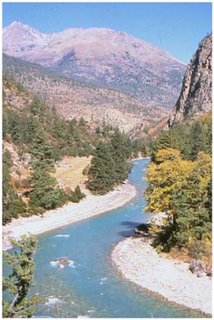
So King Gyanendra didn't get that much-expected invitation from India.
Ending his three-day visit, Indian Foreign Secretary Shyam Saran brushed aside speculation, saying it was not his job going about handing out invitations.
But who expected the invitation?
Foreign Minister Ramesh Nath Pandey was extensively quoted as having made that suggestion before Saran's arrival. But those news reports quoted some other source.
An invitation to the monarch at this juncture would have represented a monumental climb-down for the Indians. Imagine how the Chinese would have felt.
In the early 1960s, when democracy and human rights were not so chic, it took a massive Chinese blow on the border for India to begin overtures to the palace. And it took almost two years after King Mahendra booted Bishweswar Prasad Koirala and Co.
How could 18 truckloads of Chinese arms entering the kingdom without Beijing having let out a whisper trigger a monumental turnaround? Especially when Hindi-Chini bhai bhai has gained an economic luster?
So the "non-invitation" was probably a cover floated to conceal the real bargaining Saran was in Nepal for: preventing China from entering Nepal's hydroelectricity industry.
On the eve of his arrival in Kathmandu, Saran was lecturing us how Nepal had the potential of being the richest country in South Asia [only if…]
That ploy must have prompted King Gyanendra to strike hydroelectricity off the agenda right away.
In the end, the best Saran could get was Nepal's permission to resume construction of the dam at Danda river on the Rupendehi border. That, too, with an explicit rider: the Indian government would have to construct two culverts – and more, if need be – to discharge water collected on the Nepalese side.